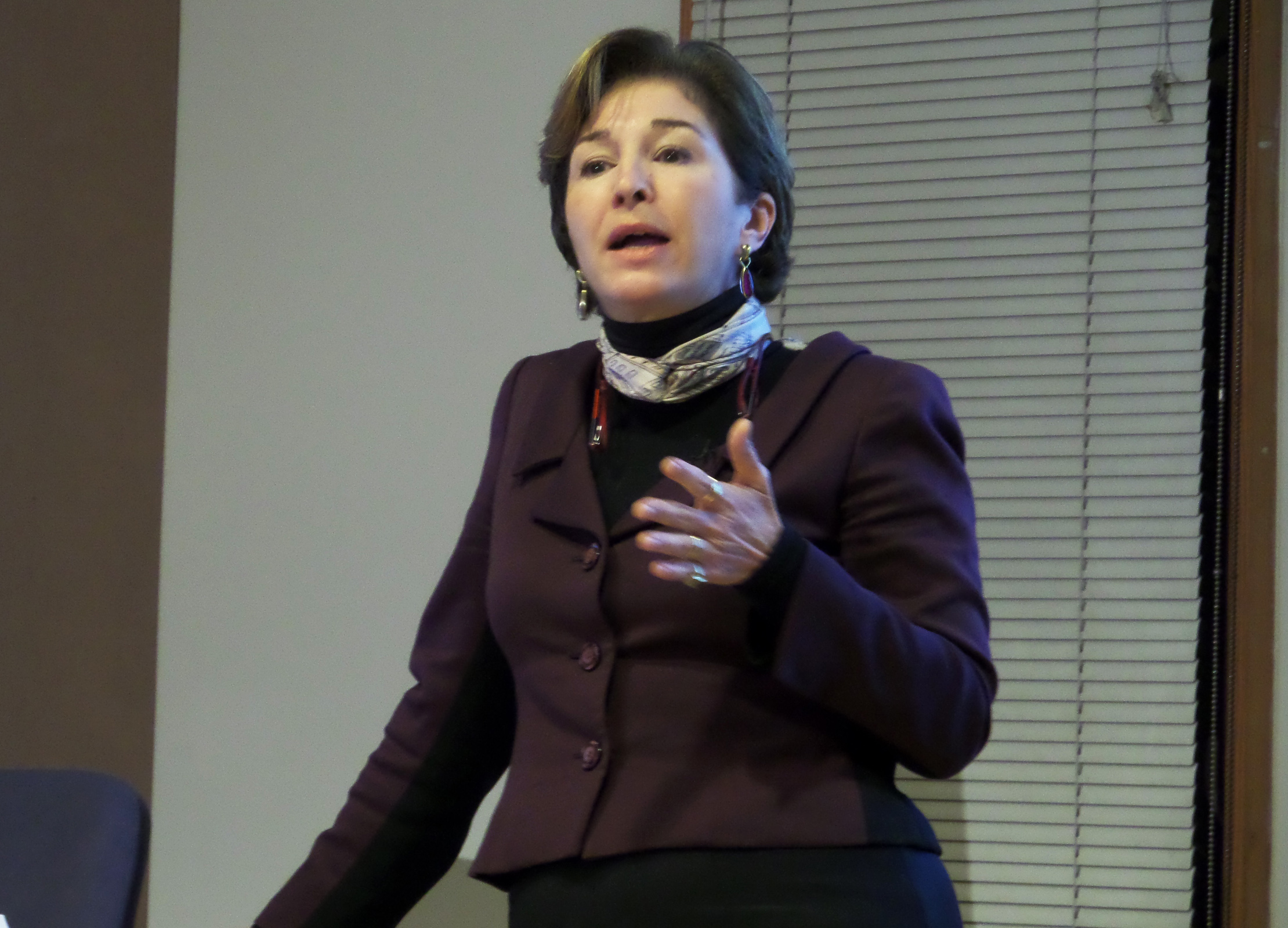
On Wednesday and Thursday afternoons, small crowds gathered in Luce Hall to hear Anne-Marie Slaughter, former director of policy planning at the state department, discuss strategies for foreign policy and building social networks. The two talks came as part of a series called “The Strategy of Connection” during which Slaughter also spoke about her upcoming book, which covers the same topics.
Slaughter is currently the president and CEO of New America — a think tank that focuses on public policy issues — and a former professor of politics and international affairs at Princeton University. At Wednesday’s talk, Slaughter read an excerpt from her book and discussed two different foreign policy strategies — the “chessboard” and the “web.” The chessboard world, she said, is more black-and-white and has been the traditional strategy of American foreign policy. The web world, on the other hand, refers to a network of interconnected and moving parts. The chessboard world tends to focus on countries as actors and the web world on individuals, she said at both talks.
“We’re investigating tools of diplomacy and development through dual lenses,” Slaughter said.
According to Slaughter, the chessboard view of international relations is more traditional, but the modern geopolitical landscape makes the web network strategy necessary too. In addition, Slaughter highlighted the necessity of the web networks when dealing with terrorism. She added that terrorist groups are largely built through close, personal relationships and that the key to dismantling their networks is to “disrupt their peer groups” and provide positive alternatives for participating in these groups.
During both talks, Slaughter examined China, Syria and Ukraine through both lenses, demonstrating how the chessboard and web models present slightly different views of the countries’ problems and the best ways to solve them. She discussed the pertinence of these countries strengthening their existing defense and communication networks by incorporating a distributed power structure.
While Slaughter said web networks are relevant to U.S. foreign policy, they are equally applicable on lower social levels, including on Yale’s campus. Since a web network derives its power from individual players wanting to be recognized as equals, the network plays an important role in instances ranging from terrorist organizations to student clubs.
“The power of networks — the way in which networks are successful — is because they honor the human desire to be heard and seen as a peer,” Slaughter said.
After taking questions from the audience Wednesday, Slaughter said both strategies are ways to further the United States’ foreign policy objectives, although they work within different time frames. Chessboard policies are calculated and are enacted quickly, while web policies are longer-term and involve establishing connections for an eventual payoff.
“I really wish that more people could have been here because I think the different paradigm that [Slaughter] is talking about can change your way of thinking so dramatically,” said Connie Gersick, a fellow of Branford College and visiting scholar at the School of Management. “So many people don’t question the chessboard approach, and we really need the network way of thinking, too.”
Marilyn Wilkes, director of communications at the MacMillan Center, said the center tries to pick speakers who will be informative and well-regarded by students. Jordan Blashek LAW ’18 said he was excited to hear about how Slaughter thinks about network theory and relates it to policy planning and thinking broadly about the world.
The final lecture in Slaughter’s series, entitled “Power, Policy and Leadership in a Networked World,” will be held in Luce Hall at noon Friday.







